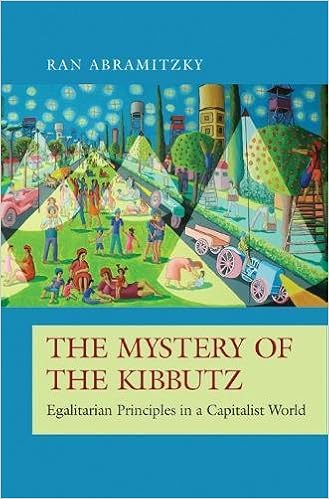
As stated at the beginning, “kibbutzim are fascinating social experiments to study the survival of egalitarian principles” (Kindle location 124). The author processes this experiment for enriching socio-economic theory, combining reader-friendly professional discourse with statistical analysis, together with personal reminiscence. The overall frame is economic, but other important factors “such as identity, culture, politics, and social structure” (Kindle location 156-157) are adequately taking into account.
As explained in the text, Israeli collective settlements were built on idealistic commitment to Zionism combined with the Communist egalitarian principle “from each according to ability, to each according to his needs.” Also supplying members with many internal public goods, Kibbutzim successfully copes for many years with brain drain, free-riding, and the tendency of less-productive individuals to join (adverse selection).
However, when Israeli political and economic transformations provided a shock and endangered their existence Kibbutzim adjusted. Most provided more privacy and differential wages, contradicting their foundational values but still supplying a substantive safety net and significant public goods. And some of the richer Kibbutzim succeeded to maintain full equality while expanding their economic bases.
Concerning generalized conclusions on tensions between equality and efficiency, the author equivocates: “Kibbutzim stood for many years as ‘proof’ that socialism and income equality can actually work,” but “opponents of socialism …point to the recent shift away from income sharing and communal ownership of property as a proof that any socialist society is doomed to fail” (Kindle location 5476-5483). However, not taking a clear stand on the issue is fully justified: It depends on many dynamic variables changing non-linearly.
Following up this reading of mine, I am quite sure that in the foreseeable future science and technology will make contemporary discourse on equality versus efficiency obsolete. Thus, even without going as far as the Singularity hypothesis, robotization will provide radically novel options on equity, efficiency, and the relations between them.
Accordingly, I add a subtext hypothesis to this book: Kibbutz-akin communities may well become one of the ways for synergistically combining equality with efficiency. This is one more reason for reading this book thoughtfully.
No comments:
Post a Comment